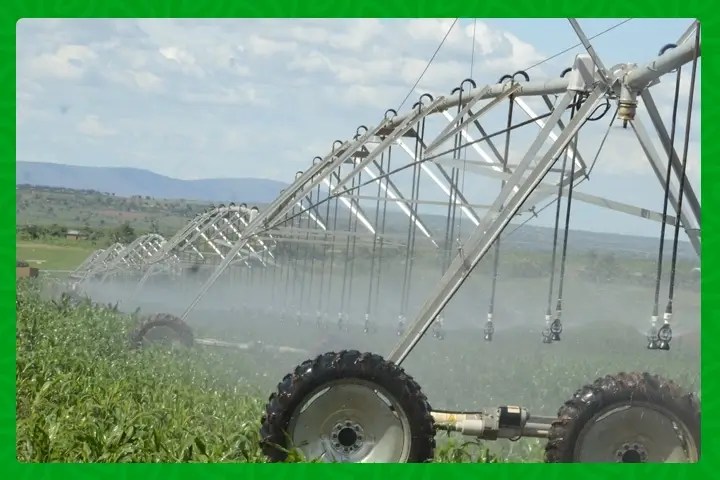
In a groundbreaking stride towards agricultural prosperity, Rwanda’s National Strategy for Transformation (NST1) has witnessed an extraordinary surge in fertilizer use and a substantial expansion of irrigated land, aiming at elevating farm productivity to unprecedented heights. Prime Minister Edouard Ngirente recently unveiled these impressive achievements during the 19th National Dialogue Council Umushyikirano on January 23, 2024.
Doubling Fertilizer Use: A Catalyst for Agricultural Triumph
Under NST1, Rwanda has demonstrated a remarkable commitment to ensuring food security and fostering surplus for the market. Prime Minister Ngirente highlighted the government’s response to the challenges posed by the global disruptions caused by the Covid-19 pandemic and the Russia-Ukraine war. Facing rising international fertilizer prices, the government responded with increased financial support for farmer subsidies, resulting in a substantial boost to the quantity and quality of farm inputs.
“We are thrilled that the subsidy played a pivotal role in empowering farmers to enhance their farm inputs, doubling the fertilizer use to 70 kilograms per hectare per year from the 2017 figure of 32 kilograms,” Prime Minister Ngirente stated with pride.
Notably, Rwanda’s achievement surpasses the Sub-Saharan Africa average of 25 kilograms per hectare per year, showcasing the nation’s commitment to agricultural excellence. Despite this accomplishment, Prime Minister Ngirente acknowledged the global benchmarks, emphasizing the continued effort to raise the bar further.
The inauguration of the fertilizer blending plant in Bugesera District stands as a testament to Rwanda’s commitment to agricultural advancement. With a capacity to blend 100,000 tonnes of fertilizers annually, the plant customizes fertilizers based on soil types and crop nutrient requirements, promising increased farm productivity.
Seeds of Self-Reliance: A Pledge Fulfilled
Furthermore, Rwanda celebrated the fulfillment of its 2018 commitment to become self-reliant in seeds since 2021. The country no longer imports seeds for maize, wheat, and soybean, thereby meeting the farmers’ seed needs locally. This milestone not only ensures seed security but also translates to a substantial saving of Rwf4 to Rwf8 billion previously spent on seed imports. These savings are now redirected to support domestic seed multipliers, reinforcing the sustainability of Rwanda’s agricultural landscape.
Irrigation Revolution: Nurturing Agricultural Growth
In tandem with fertilizer use, NST1 has fueled a significant expansion in irrigated land, rising from 48,000 hectares in 2017 to an impressive 71,000 hectares presently, marking a 47% increase. Key projects such as Gabiro Agribusiness Hub, Nasho, and Mpanga irrigation schemes have played pivotal roles in this surge.
Looking ahead, Rwanda is poised to surpass its irrigation targets under NST1, with an ambitious goal to irrigate more than 102,000 hectares by June 30, 2024. The Minister of Agriculture and Animal Resources, Ildephonse Musafiri, emphasized the importance of increased irrigated land to build resilience against climate change, underscoring the ministry’s plan to add 20,000 to 30,000 hectares in the next five years.
Farmer Testimonies: A Resounding Confirmation
Lenatha Mukamana, a farmer from Nyanza District, expressed gratitude for the government’s subsidy on farm inputs, acknowledging its instrumental role in enhancing food production and eradicating hunger. Mukamana highlighted the significant impact of irrigation on food production, urging for greater efforts to expand irrigation, particularly in drought-prone areas.
As Rwanda strides confidently towards agricultural excellence, the NST1 program stands as a beacon of transformation, demonstrating the government’s unwavering commitment to ensuring food security, elevating farmers’ livelihoods, and establishing Rwanda as a powerhouse in sustainable agriculture. With each milestone surpassed, the nation is paving the way for a future where agriculture thrives, and every citizen enjoys the fruits of a bountiful harvest.
Original article written by Emmanuel Ntirenganya


















